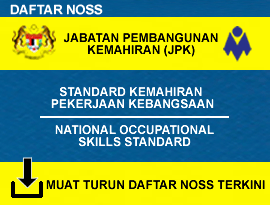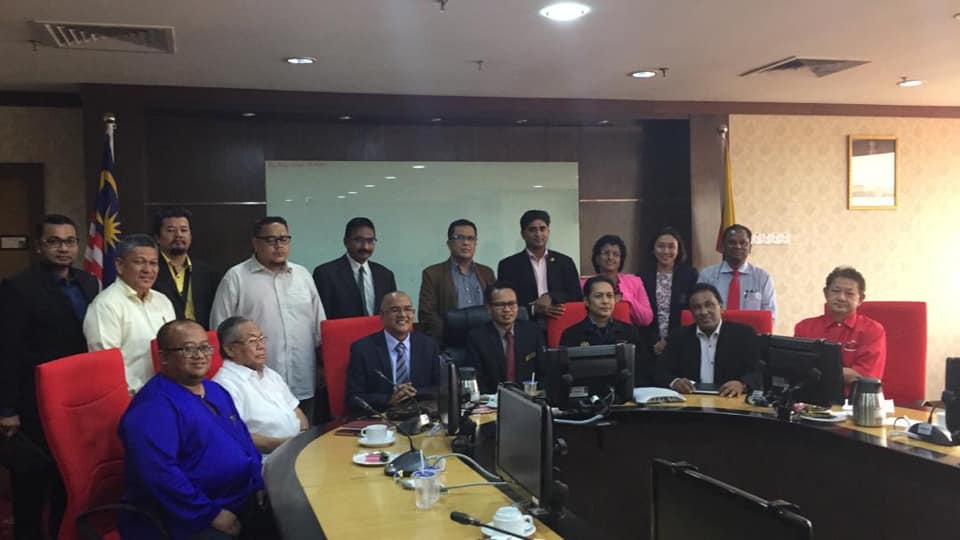
Kementerian Sumber Manusia telah menyiapkan pelan tindakan (blueprint) 2025 di bawah Majlis Pembangunan Kemahiran Kebangsaan yang membabitkan enam kementerian untuk meluaskan lagi projek Latihan Vokasional dan Pendidikan Teknikal (TVET).
Timbalannya, Datuk Mahfuz Omar berkata, program Tahfiz TVET merupakan langkah pertama untuk meluaskan lagi latihan kemahiran kepada anak muda Tahfiz mengikut keperluan industri semasa.
Katanya, kementerian akan bekerjasama dengan Kementerian Pendidikan Malaysia (KPM) untuk merancakkan TVET secara lebih baik dengan elemen Tahfiz yang dibawa.
“Kita sedang dalam memasukkan pelan ini ke dalam Rancangan Malaysia Ke 12 supaya menjadi persiapan untuk kita lebih bersungguh-sungguh menyediakan dana mencukupi terutama dalam menghadapi Industri Revolusi 4.0.
“Saya harap dengan adanya TVET Tahfiz ini, perhubungan dua latar belakang yang berbeza dapat dipertemukan di mana tenaga pengajar tahfiz sedikit sebanyak dapat mempelajari ilmu kemahiran Industri Automasi dan Robotik. Malah guru TVET juga dapat memahami tentang Tahfiz.
“Saya menyeru ibu bapa supaya tidak bimbang untuk hantar anak-anak mereka dalam program TVET Tahfiz ini malah kita harus lihat sebagai salah satu masa depan mereka untuk mendapatkan peluang pekerjaan,”katanya.
Beliau berkata demikian kepada pemberita selepas majlis Perasmian TVET Tahfiz dan Sambutan Aidilfitri Encounter Corridor Training Centre (ECTC), di Galleri Klang Sentral, hari ini.

Datuk Mahfuz Omar beramah mesra dengan pelajar tahfiz dalam majlis yang diadakan hari ini.
Turut hadir, Ketua Pegawai Eksekutif (CEO) Enter Coridor, Ahmad Radzi Yusof; Pengetua Maahad Tahfiz Al Quran Wa As Sunnah (MTAQWA’S), Ahmad Zaki Abdul Latif; dan Ahli Dewan Undangan Negeri (Adun) Meru, Mohd Fakhrulrazi Mohd Mokhtar.
Dalam majlis sama, beliau turut menyokong pendekatan ‘MenTVETkan tahfiz dan menTahfizkan TVET’ sebagai salah satu agenda yang dibawa oleh kerajaan untuk memperkasakan pendidikan Tahfiz.
Katanya, peluang tersebut akan membuka peluang lebih luas kepada pelajar tahfiz menceburi bidang kemahiran yang diiktiraf Jabatan Pembangunan Kemahiran (JPK) tanpa mengabaikan hafazan mereka.
“Saya juga berharap Jabatan Zakat dapat tampil membiayai memberikan dana kepada anak-anak tahfiz untuk program tvet yang sudah tentu akan membentuk pemikiran baru di luar kotak dimana Tahfiz tidak semestinya menjadi imam dan bilal sahaja apabila mereka keluar bekerja kelak,”ujarnya.
Sementara itu, Ahmad Radzi berkata, program TVET Tahfiz sama sekali tidak mengganggu proses pembelajaran dan penghafazan anak-anak Tahfiz.
Malah katanya, program ini dapat memberikan penekanan bersifat ‘serampang dua mata’ membabitkan latihan kemahiran dan menghafaz al-Quran kepada pelajarnya.
“Waktu belajar dan menghafaz mereka tidak akan terganggu. Program hafazan hanya akan berlangsung pada sebelah malam. Manakala program latihan TVET ini bermula jam 8pagi sehingga jam 5 petang.
“Untuk pilot project yang pertama kali di adakan ini, pengambilan pelajar tahfiz untuk sesi pertama latihan TVET seramai 35 orang,”ujarnya.
Program hari ini turut menyaksikan tandatangan memorandum persefahaman antara ECTC dan MTAQWA’S.
Sumber: malaysiadateline.com
Komen: Min cuma ingin tahu, kursus TVET tahfiz ni akan dapat sijil apa nanti?
Pastinya bukan Sijil Kemahiran Malaysia (SKM) kan?
Siapa boleh tolong jawab?





















